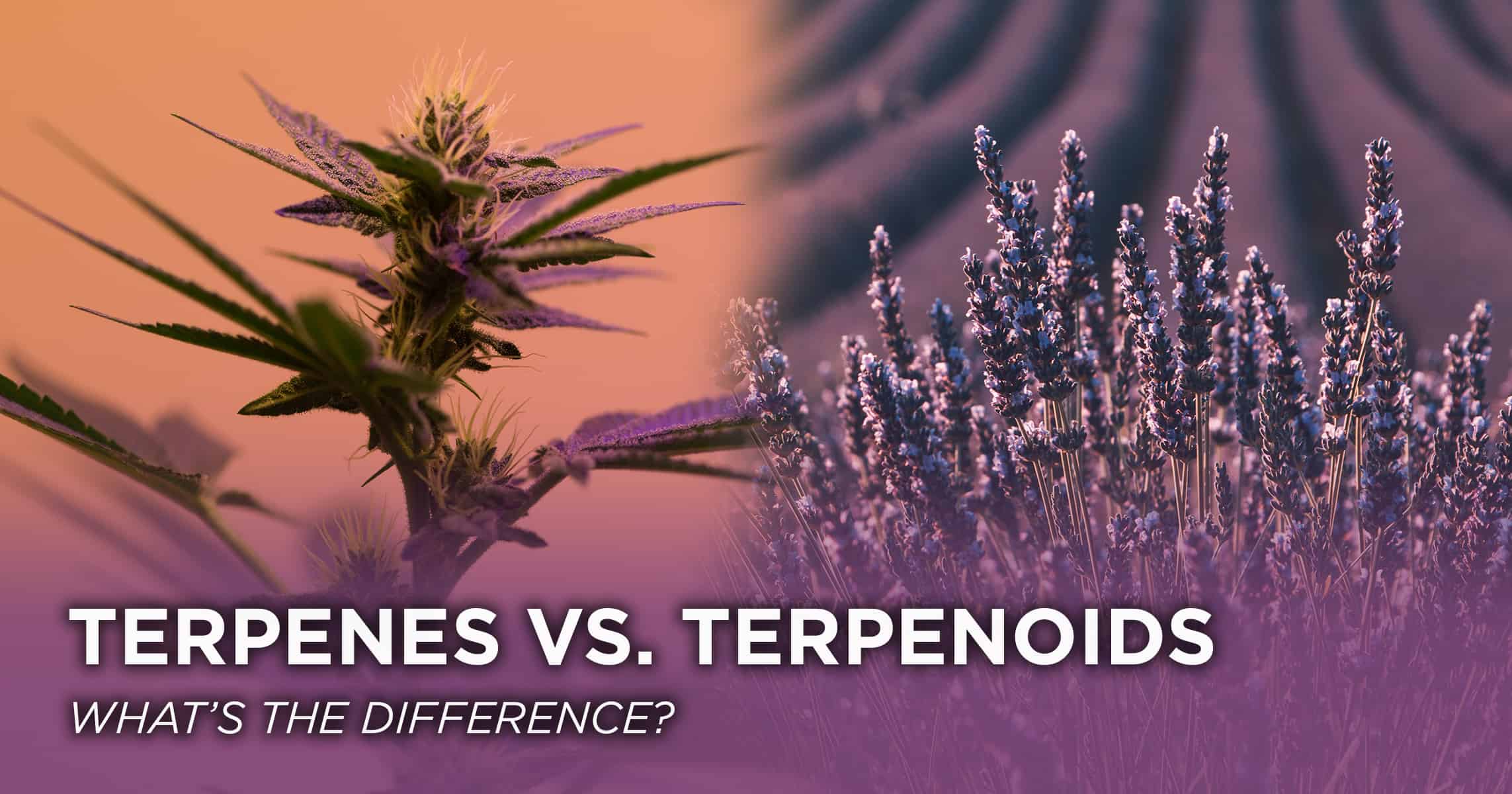[vc_row][vc_column][vc_column_text]Terpenes vs. Terpenoids
In the not so distant past, weed was weed. You’d be lucky to know if your pot was an indica or sativa. You likely didn’t know the origin, who grew it, the strain, thc percentages, or anything like that. Thankfully, we live in a brave new world[i]. While we didn’t get that rad hoverboard from Back to the Future: Part 2, flying cars, or girlfriends we created via a computer our present includes the ability to select cannabis by mode of ingestion, desired effect, and aroma. That’s something Biff Tannen can never take away from you.
If you are a reader of our blog, you should be familiar with terpenes. We just wrote about how terpenes affect your experience with marijuana. Terpenes do a few things. For one, they affect the scent and taste of your weed. However, they also affect how your body responds to the cannabinoids (THC, CBD, CBG,THCV, etc) and flavanoids you ingest. This mechanism response is known as the entourage effect, and the research into the effect is fascinating. The entorague effect has been demonstrated to increase the therapeutic affects of cannabis in several studies which you can read about here.
So that covers terpenes. We are done, right? Not so fast!!!! We also see the word terpenoids used, often interchangeably with terpenes. So are they the same thing? Not exactly. Terpenes are hydrocarbons (a big word for fancy combinations of hydrogen and carbon molecules that are found in all living things, not just pot. If altered by oxidation (such as when you dry out and cure bud) or a chemical process terpenes become terpenoids. So a terpenoid is dry, a terpene is wet. It’s the drying that makes the difference.
As far as the desired effect related to terpenes versus terpenoids, we are getting into exicting new territory It was assumed that they basically do the same thing despite their slightly different chemical structure. We know that not to be true. When, for example, b-mycrene is oxidized into hashishene the flavor profile and therapeutic affects are altered. We know that proper “curing” aka oxidation of cannabis and/or cannabis resin in a dark environment can increase amounts of cannabinol – so we can look forward to a future where the linkages between the 400+ active compounds including terpenes, terpenoids, curing methodologies, secondary cannabinoids, flavonoids, and their overall therapeutic capacity via the entourage effect will be more fully understood. So like we said before, brave new world[ii], our minds have been changed! The human race has moved on and we’ve become more enlightened! Sweet! Stay tuned for new research and toke on Dreamers!
[i] Also thankfully we do not live in the book Brave New World.
[ii] Again, not the book. You think we wouldn’t have to tell you twice![/vc_column_text][/vc_column][/vc_row]






